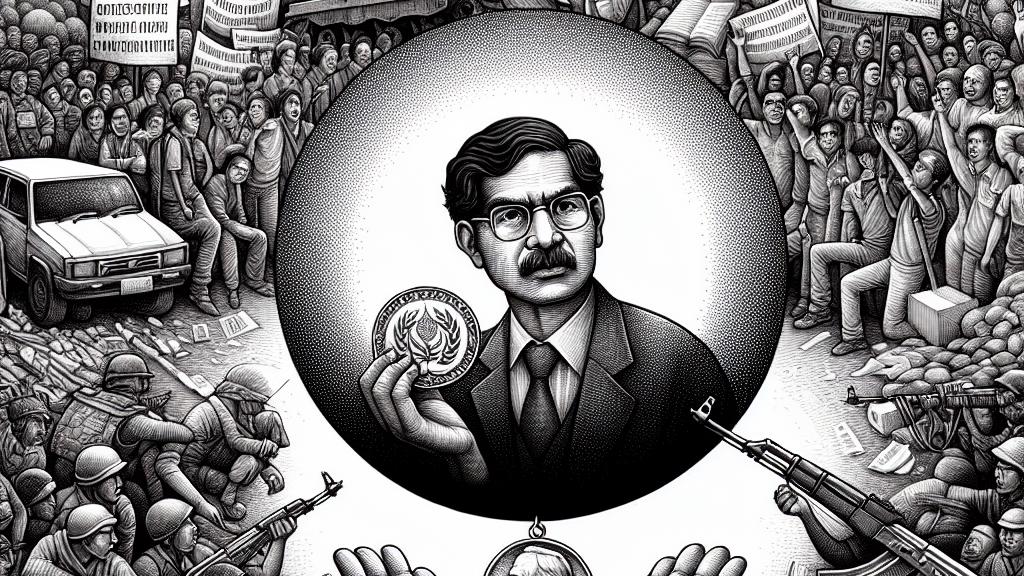Muhammad Yunus: The Unexpected Leader of Bangladesh's Interim Government!
Overview
- Nobel laureate Muhammad Yunus appointed to lead Bangladesh's interim government amid political unrest.
- His leadership follows the resignation of Sheikh Hasina after mass protests and violence.
- Yunus's focus is on restoring peace, addressing socio-economic issues, and preparing for future elections.

The Emergence of Political Unrest in Bangladesh
Bangladesh is currently navigating a significant political crisis that culminated in the resignation of Prime Minister Sheikh Hasina, a leader whose tenure extended over 15 years. The unrest was initially sparked by student-led demonstrations demanding an end to a contentious government job quota system, but it rapidly escalated into widespread protests against the government’s handling of human rights issues and allegations of election fraud. The situation reached a boiling point as violent clashes erupted, leading to the loss of over 300 lives. In this tumultuous context, the military intervened and positioned Muhammad Yunus, a globally recognized economist and Nobel Peace Prize winner, as the head of the newly formed interim government, igniting hopes for a return to stability in the nation.
Muhammad Yunus: A Legacy of Social Impact
Muhammad Yunus is renowned for his pioneering role in microfinance, establishing Grameen Bank to provide small loans to impoverished individuals, particularly women. His innovative approach has inspired similar initiatives around the world and played a crucial role in lifting millions out of poverty in Bangladesh. Yunus's focus on empowering women and creating economic opportunities is not only a cornerstone of his work but also a guiding principle for his leadership as interim head of state. His appointment comes with high expectations that he will navigate Bangladesh through its political turmoil while promoting initiatives that uphold social equity and economic development.
Future Challenges and Opportunities for the Interim Government
As Yunus takes the reins of the interim government, he faces formidable challenges ahead, including restoring public trust and addressing the urgent socio-economic issues that have fueled the protests. The immediate tasks involve ensuring security, conducting thorough investigations into recent violence, and preparing for fair elections that reflect the people's will. Yunus aims to build bridges across various societal sections, fostering an inclusive environment where dialogue can thrive. By actively engaging with citizens, especially the youth who mobilized for change, he hopes to create a robust foundation for long-term reforms that address the systemic issues at the heart of the unrest. This transitional period represents a critical moment for Bangladesh, offering the potential for meaningful change and progress under Yunus's stewardship.

Loading...